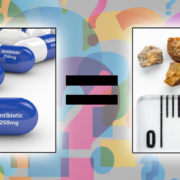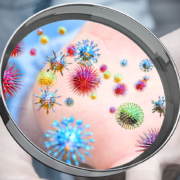How Your Microbiome Affects Infertility
Many couples struggle with infertility; they want to start a family but time passes with no results. This week, I’ll cover three recent studies that examine some factors that may affect fertility.
Researchers tested the fluids from the cervical-vaginal area in 96 subjects to examine the microbiome: were there any differences in the microbes in these women when compared to an established database of microbes typically found in that area? They found differences in the quantities of several bacteria. The researchers commented that the pattern of the microbiome was similar to women with bacterial vaginosis; it didn’t mean they had the condition, simply that there was a similar pattern in the microbiome. The researchers concluded that testing techniques could be developed along with treatment specific to the microbiome that could help infertility.
In this case, the researchers provided more questions and areas for further research. Where’s the solution? What can we do now? Ask yourself this: what makes the microbiome healthy in general? Without question, one of the primary ways is through diet. Eating vegetables, yogurt, and fermented foods contributes to a healthy microbiome.
What are you prepared to do today?
Dr. Chet
Reference: J Cell Physiol. 2017 Jul;232(7):1681-1688. doi: 10.1002/jcp.25806.






 SkinMicrobiome
SkinMicrobiome

